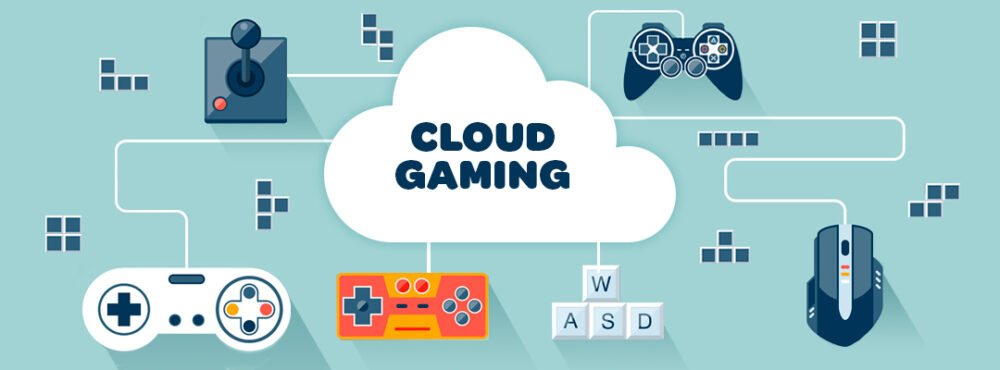Cloud computing is the instant, remote access to computing systems and resources without being actively involved in managing infrastructure. It’s a data center made accessible to many users using the Internet. Anyone with access rights can interact with the cloud and retrieve, manage, download information from anywhere around the world.
Cloud computing services get provided on a “pay as you go” basis. The essential cloud computing features that you can enjoy:
- Vast Network Capacity: You can access resources quickly through the network using the standard platform and mechanism protocols
- Instant self-service: You can seamlessly access computing capabilities such as CPU Computing resources and storage as needed, without requiring human intervention
- Durable Elasticity: You have unlimited access to resources that you can purchase instantly, in any quantity
- Pooling Resources: You seamlessly leverage multi-tenant models to pool virtual and physical resources and dynamically make consumer assignments according to their demand
- Real-Time Service Analytics: All the cloud resources and services you use get optimized via pay-per-use.
What is Cloud Computing Gaming?
The gaming industry is openly embracing cloud computing technology and is also implementing Gaming as a Service (GaaS). The tremendous processing power of cloud computing enables users to stream video games directly to their devices and run them from remote servers. The cloud handles all the processing requirements for the device. You don’t need next-generation hardware to enjoy the latest games.
You can now stream gaming content from a network server. GaaS capabilities get supplied in different provisions: local rendering GaaS, remote rendering GaaS, and cognitive resource allocation GaaS.
All you need is low latency and a large bandwidth with minimum response time and high-quality video output. Although, there are many models for the provision of cloud gaming, including a monthly subscription to access an entire library of gamers or pay per game you request.
The Adoption of Cloud Computing in the Gaming Industry
The high costs of gaming equipment usually present shortfalls in the gaming experience. Especially now that cloud computing is deeply established, it’s become more expensive to set up shop with physical games.
The number of gamers plus the total time spent playing and watching video games online has been rising over the years. An Entertainment Software Association (ESA) report entails that around 64% of adults in the U.S. regularly play video games.
The scope of Cloud computing in the gaming industry has enormous potential to expand. Today, video gaming is actively engaging about 2.8 billion people worldwide, a number expected to soar beyond 3 billion as of 2023. The entire video game industry is on the verge of reaching $189.3 billion in revenues as of 2021. At the same time, the global gaming market has estimates of getting a value of $256.97 billion by 2025.
Benefits of Cloud Computing For The Gaming Industry
- Your personal information remains protected by industrial security standards (almost zero chances of breaching)
- Your Gaming progress remains updated even if you switch devices
- You can seamlessly play and save your progress in multiple games, also switching between them easily
- A single match can be made accessible through various platforms
- Companies are getting higher returns on their product investment because piracy has gotten suppressed by making the physical game copies void.
- Cloud computing gaming enables you to play high-end games using low-end gaming devices and still experience the excellent quality
- Gaming companies get to save costs because they only pay for network capacity used by their traffic
The Future of Cloud Computing in Gaming
Cloud computing is resolving many of the computing challenges faced by both gamers and gaming companies. Hence, it’s not shocking that company’s like Google and Microsoft decided to migrate to Cloud gaming services (Google Stadia and Project xCloud).
Although, some realists look beyond the hype to argue that the Internet presents limitations regarding processing speed. But, the coming years have the possibility for significant changes and solutions to latency and processing problems.
Ongoing developments are driving us closer to faster adoption of cloud gaming services. The complete rollout of 5G technology will speed up the power of cloud computing and drive further adoption.
Companies Driving Change in Cloud Computing and Gaming
Microsoft
Microsoft established Project xCloud, which aims to enhance the gaming experience across multiple devices. And they launched cloud gaming (beta) for Xbox Game Pass Ultimate members in 2020.
Sony
Initially made its cloud computing gaming debut in 2014 when it launched PlayStation Now. Sony acquired a leading interactive cloud gaming company back in 2012. It successfully established its place in the world of cloud-based Gaming. Although sony remained unchallenged for years, now there are more companies expanding investments into the field.
Google has invested in the development of Stadia, a video game platform developed to provide instant access to video games regardless of the screen type. By providing the capacity to play 4K games on your TV minus a console.
You stream the games through a browser on a laptop or your phone.
Electronic Arts
EA established Project Atlas in 2018 to leverage cloud computing and artificial intelligence in enabling game developers to access services at optimal capacity, with an easy-to-use experience.
Amazon
The leading cloud service providers also launched a cloud computing gaming service, Luna, which harnesses the extensive cloud capacity of AWS. Amazon is also establishing a new gaming channel in collaboration with global video game developer Ubisoft. You can access the massive library of games by subscription.
NVIDIA
This company has been actively building cloud gaming solutions for many years. The evidence of its research and development lies in the release of GeForce. In February 2020, GeForce became accessible to everyone.
Nvidia also collaborated with Tencent to establish PC Cloud gaming in China.
Want more news from the Tech world for Gaming Peripherals to Hardware Click Here







